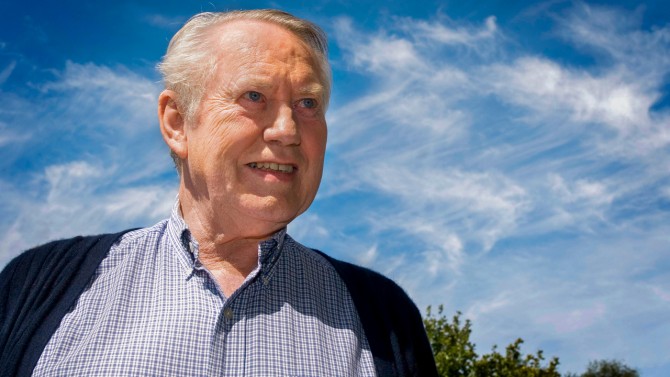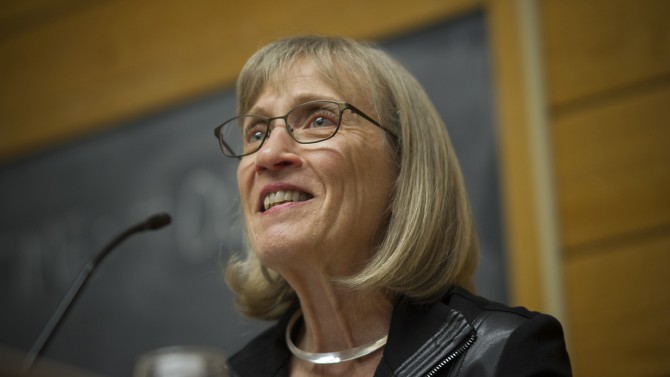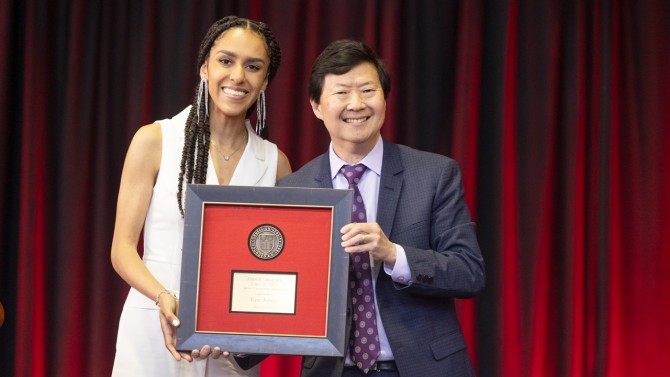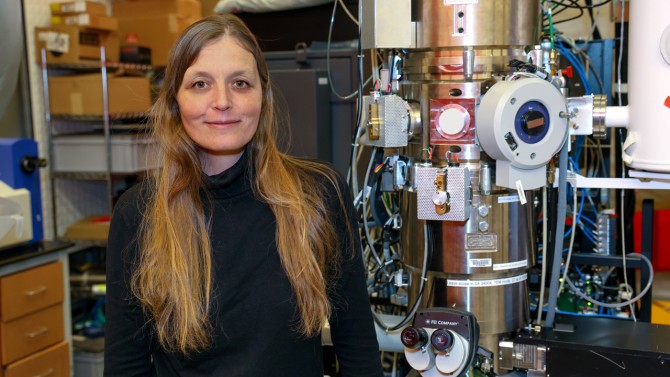In labs, classrooms, communities, and beyond, Cornellians have left their mark in 2023. Cheers to a year of groundbreaking research, intellectual curiosity, and collaborative spirit.
The Dead rise: Cornell '77 tribute show among top stories of 2023
By Tom Fleischman, Cornell Chronicle
When members of the Grateful Dead – as Dead & Company – returned in May for a benefit concert commemorating the famed “Cornell ’77” show, it drew thousands of students, alumni, local residents and music lovers to Barton Hall.
It also drew tens of thousands of readers to the Chronicle’s March announcement of the Dead & Company show, making it the most-viewed Chronicle story of 2023.
In fact, Dead & Company stories comprised two of the top 10 most-viewed stories this year, both written by Chronicle senior staff writer (and non-Deadhead) Dave Nutt. His coverage of the concert itself checked in at No. 7; another story on current students’ love for the Dead came in at No. 15.
In 2023, top Chronicle stories included coverage of a 1967 alum’s Nobel Prize win, the passing of a Cornell legend and the 25th anniversary of a mathematical model that “changed everything.”
Here is a rundown of the past 12 months’ most popular stories, as of Dec. 11.

This year’s most-read Chronicle story announced the return to Cornell of Dead & Company, which included members of the Grateful Dead, for a fundraising concert on May 8, benefiting Cornell’s 2030 Project and the nonprofit MusiCares.
Top stories
The Grateful Dead is one of the most iconic rock bands in history, and ground zero for “jam band” culture. Its May 8, 1977, concert – during a surprise spring snowfall – is regarded as one of the best concerts in the band’s massive oeuvre, spanning 30 years and thousands of shows.
This year’s most-read story, published March 8, announced the band’s return as Dead & Company for a fundraiser benefiting Cornell’s 2030 Project – which has since announced a slew of projects funded by the proceeds – and the nonprofit MusiCares. And the May 8 show had multiple generations of Cornellians and Deadheads dancing, singing and celebrating at the site of one of the Dead’s most historic live performances.
This year’s No. 2 story, from March 31, was the announcement of Cornell’s “extraordinary” Class of 2027. The piece introduced the 4,994 newly admitted undergraduates, who hail from nearly every U.S. state plus Washington, D.C.; Puerto Rico; the U.S. Virgin Islands; Guam; and American Samoa, as well as 87 countries.
The third-most viewed story was the obituary for Charles F. “Chuck” Feeney ’56, founding chairman of The Atlantic Philanthropies and Cornell’s most generous donor. Feeney, who invested nearly $1 billion in his alma mater through the foundation over the course of four decades, died Oct. 9 in San Francisco, at 92. He’s been called Cornell’s “third founder” for his outsize impact, which includes the $350 million gift that helped establish Cornell Tech.
The No. 4 story, published May 31, celebrates the silver anniversary of the mathematical model developed by Steven Strogatz, the inaugural Susan and Barton Winokur Distinguished Professorship for the Public Understanding of Science and Mathematics, in the College of Arts and Sciences, and then-doctoral student Duncan Watts, Ph.D. ’97. The model, inspired by social scientist Stanley Milgram’s “six degrees of separation,” provided a way of understanding a wide range of networks, and ushered in the modern era of network science.
Also in the top 10 for 2023:
- No. 6: A story detailing research on the underside of the Antarctic ice shelf, thanks to a remote-controlled underwater robot named Icefin. The Cornell portion of the international research team was led by Britney Schmidt, associate professor of astronomy and of earth and atmospheric sciences in the College of Arts and Sciences and in Cornell Engineering. (Schmidt was later named one of Time Magazine’s 100 most influential people of 2023.) Icefin provided an unprecedented look inside a crevasse in the Ross Ice Shelf, revealing more than a century of geological processes, and should ultimately improve models of sea-level rise.
- No. 8: A story on Claudia Goldin ’87 winning the 2023 Nobel Memorial Prize in Economic Sciences, for her study of women’s progress in the workforce. Goldin had dreamed of becoming either an archaeologist or a microbiologist, until she took an economics course at Cornell – taught by noted economist Alfred Kahn. Goldin joined more than 50 Cornell alumni, faculty and visiting researchers who’ve won Nobel Prizes.
- No. 9: A story on a Type 1 diabetes treatment device, developed in the lab of Minglin Ma from the College of Agriculture and Life Sciences, that could be implanted under the skin and secrete insulin while avoiding the immunosuppression that typically stymies management of the disease. The approach would offer an easier, long-term and less invasive alternative to insulin injections or traditional transplants that require immunosuppression.
- No. 10: A research story out of the ILR School reporting that fewer than 40% of New Yorkers earn a living wage. The research team, led by Russell Weaver, director of research at the ILR Buffalo Co-Lab, developed the Cornell ILR Wage Atlas to help New York state policymakers and other stakeholders more easily analyze and visualize who earns living wages and where; and
Other highlights
Theme year: In April, President Martha E. Pollack announced that the 2023-24 academic year would have a theme, “Freedom of Expression,” marking the first academic theme year in the university’s 158-year history. It was inspired by the late Supreme Court associate justice Benjamin Cardozo, who called free expression “the matrix, the indispensable condition, of nearly every other form of freedom.” The theme has been celebrated with a Cornell Law School forum, a College of Human Ecology fashion exhibit, a Bartels World Affairs Lecture and a free-press forum featuring NPR’s David Folkenflik, among other events – with more to come in the spring.
Convocation speaker: Ken Jeong, who rose to fame with the “Hangover” movie franchise and stars on “The Masked Singer,” delivered the Convocation address in May and urged the Class of 2023 to be fearless and ready to change course if necessary. “Dare I say, you’re the most adaptable class who’s graduated college in recent memory,” said Jeong, who is also a licensed physician.
New leadership: In June, Dr. Robert Harrington, then chair of the Department of Medicine at Stanford University, was announced as the Stephen and Suzanne Weiss Dean of Weill Cornell Medicine and provost for medical affairs of Cornell University. Harrington, a Boston native, began his tenure on Sept. 12.
Protecting eagles: Among the nearly two dozen feature stories published this year was a recent piece by multimedia producer Noël Heaney and senior staff writer James Dean on how New York state hunters can help protect wildlife, including bald eagles, from the dangers of lead poisoning by using nonlead ammunition. Other features highlighted Cornell’s military veterans and their stories; how the low-income tax clinic helps farmworkers access justice; the work of New York FarmNet, which cultivates financial and emotional stability for the state’s farming families; how polyester might actually help save the environment; and how master’s student Thomas Jones persevered from prison to the Ivy League.
Other notable passings
David B. Lipsky ’61, a renowned conflict resolution, negotiation and collective bargaining scholar, a former dean of the ILR School and the founding director of the Scheinman Institute, died Jan. 17 in Ithaca at 83.
Edward Dean Wolf, a pioneer in nanofabrication who joined Cornell in 1978 as the first director of what would become the Cornell NanoScale Science and Technology Facility, died March 11 in Ithaca at 87.
Hwa Chung “H.C.” Torng, M.S. ’58, Ph.D. ’60, professor emeritus of electrical and computer engineering, who invented a mechanism that helped advance high-speed computer processing, died March 31 in Walnut Creek, California, at 90.
Edward H. Meyer, member of Weill Cornell Medicine’s Board of Fellows and devoted benefactor, whose $75 million gift with his wife established the Sandra and Edward Meyer Cancer Center, died April 11 in New York at 96.
John Kingsbury, professor emeritus of botany and founder of Shoals Marine Laboratory, who built a small island in the Gulf of Maine into an immersive, summerlong living classroom for students eager to learn about the land and the sea, died May 27 in Norwich, Vermont. He was 94.
Steve Shiffrin, the Charles Frank Reavis Sr. Professor of Law, Emeritus, a renowned legal scholar widely recognized for his contributions to the field of constitutional law, particularly the First Amendment, died May 29 in Ithaca at 82.
Howard Evans ’44, Ph.D. ’50, emeritus professor of anatomy in the College of Veterinary Medicine, who inspired countless students over 70 years with his love of anatomy and natural history, died June 20 at 100.
Lena F. Kourkoutis, M.S. ’06, Ph.D. ’09, an associate professor in Cornell’s School of Applied and Engineering Physics who was internationally recognized for her advances in cryo-electron microscopy, died on June 24 at 44, after living with colon cancer for two years.
Francis J. “Frank” DiSalvo, a chemist-physicist who inspired interdisciplinary collaboration on environmental and sustainability problems, and was the first director of the Cornell Atkinson Center for Sustainability, died on Oct. 27 in Atlanta, Georgia, at 79.
Media Contact
Get Cornell news delivered right to your inbox.
Subscribe




